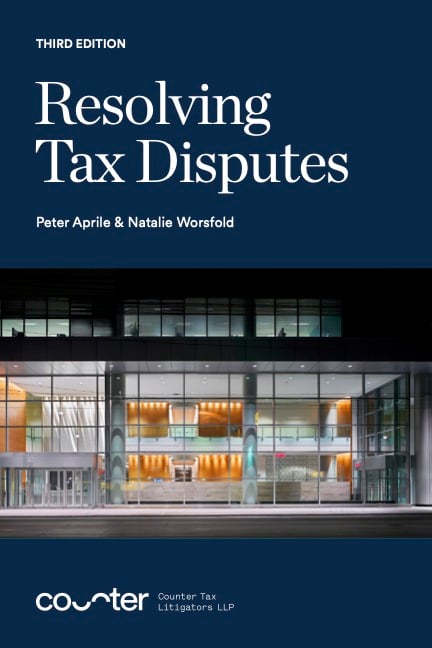
Resolving Tax Disputes (3rd edition) studies tax disputes, conflict levels, and basic strategies. It helps accountants to limit early-stage mistakes and reduce liability.
One of the chapters in RTD3 is about audits and how to handle them. It provides valuable tips to help you navigate the audit process. We’ve included some excerpts from that chapter in this article.
To represent clients effectively at the audit stage, you must know how audits normally work.
This post aims to impart a working knowledge of the normal progression of audits.
We hope this information will help you to work cooperatively and constructively during an audit – which will increase your chances of resolving your clients’ tax disputes in an acceptable fashion at the audit stage.

The Normal Progression of Audits
Audits fall into two broad categories: ‘‘desk audits’’, in which auditors simply seek information from the taxpayer in writing, and ‘‘field audits’’, in which auditors visit the taxpayer’s business premises and inspect books and records. This chapter focuses on the CRA’s main audit tool: the “field audit”.
Field Audits
Field audits can take between a few hours to several weeks, depending on the nature of the examination and the size and complexity of the taxpayer’s operations. They are normally conducted at the taxpayer’s place of business by a single auditor or by a team of auditors, supported by other experts, such as business-equity evaluators and real estate appraisers.
The auditors predetermine the scope of an audit, with the advice and direction of their team leaders, who decide which records should be reviewed and which audit techniques should be used. The CRA uses an audit information management system to communicate and record all activity undertaken as part of the audit. Specific parameters for the audit may have been set in the screener’s comments and instructions when the file was selected for audit.
_ElectricBlueFlat.jpg?width=4000&height=1771&name=CounterBlogPattern(2)_ElectricBlueFlat.jpg)
Practicalities of a Field Audit
Before beginning a field audit, the auditor usually contacts the taxpayer to arrange a mutually convenient time for an initial meeting.
At the initial meeting, the auditor presents an official identification card, discusses the nature of the taxpayer’s business, tours the taxpayer’s premises to gain a better understanding of the transactions recorded in the taxpayer’s books, and makes practical arrangements for workspace, access to photocopying, and the like. Then the auditor inspects the taxpayer’s books and records.
What To Expect During The Auditor’s Inspection
The auditor may intend to review transactions or taxation years for which the normal reassessment period has expired or is about to expire. The auditor may ask the client to sign a waiver to allow additional time for the audit if they suspect there may be controversy concerning time limits. You will need to advise your client on whether they should sign the waiver. Additionally, you may need to advise your client about which of the auditor’s questions they should answer or resist.
As it progresses, the audit’s focus narrows. The client responds to the auditor’s questions about these narrow subjects by providing documents and information.
The Accountant’s Role During the Inspection Stage
As a tax professional, you provide invaluable assistance in two ways at this stage:
- You help the client provide accurate information.
First, when providing documents and information to the auditor, the client needs your assistance to ensure that all information provided to the auditor is accurate. Given the time, expense, and occasional exasperation involved in dealing with an auditor, the client may be tempted to provide information quickly or in an off-hand manner. You should advise your client to resist this temptation because it is extremely difficult to correct inaccurate information, no matter how innocent the taxpayer’s mistake, and the auditor may use this inaccurate information to undermine the client’s credibility in the objection and appeal stages of the dispute.
_ElectricBlueFlat.jpg?width=4000&height=1771&name=CounterBlogPattern(2)_ElectricBlueFlat.jpg)
- You protect solicitor-client privilege.
Second, as a tax professional, you can help your client by ensuring that they do not inadvertently waive solicitor-client privilege by giving the auditor documents that are protected by that privilege. Documents protected by solicitor-client privilege may permanently lose their privilege if given to the auditor. To learn more about how accountants may accidentally leak confidential information to the CRA, read our article here.
As the audit begins to clarify factual issues, the auditor will indicate their view about the legal and accounting principles that they believe apply to their view of the facts. At this point, the client needs the expertise of a tax professional to gauge:
- whether the auditor’s views on these principles are correct; and,
- if the auditor’s views are questionable, to decide whether and how to challenge those views at this stage.
The Proposal Letter
Once both parties’ views on the issues of fact and principle have been canvassed, the auditor usually sends the client a proposal letter that sets out any proposed adjustments to the client’s income for the years under audit and allows the client 30 days within which to make final submissions. The client makes final submissions either directly to the auditor or, occasionally, in a meeting with the auditor’s supervisor, known as a team leader.
The T20 Report
Finally, the auditor prepares their audit report, known as a T20 report, setting out all the findings of fact and of law on which the reassessment is based. All the auditor’s working papers and schedules are appended to the T20 report, including notes from all conversations with the taxpayer.
_ElectricBlueFlat.jpg?width=4000&height=1771&name=CounterBlogPattern(2)_ElectricBlueFlat.jpg)
The T20 report cites the provisions of the Income Tax Act (“ITA”), the Regulations, the Bulletins or Circulars, and Court decisions on which the auditor relies as authority for the reassessment. The auditor’s team leader reviews, approves, and signs the T20 report.
Finally, the auditor prepares a T7W-C form, which summarizes the adjustments to be made to the taxpayer’s taxable income. The T7W-C form is forwarded to a processing unit, where the tax, interest, and penalty consequences of the reassessment are computed, and a notice of reassessment is prepared and mailed to the taxpayer.

.jpg?width=120&name=Counter%20Tax%20Litigators%20Logo%20Stacked%20(MidnightBlue%20on%20White).jpg)




.png?width=499&height=299&name=CRA%20Disputes_Management_Board_First_Conversation%20(Sphere%201%20Purple).png)


.png?width=400&height=400&name=CT-How_Can_We_Help-22_july_NewGraphic_b(small).png)